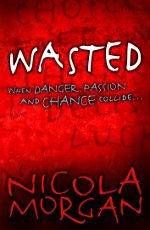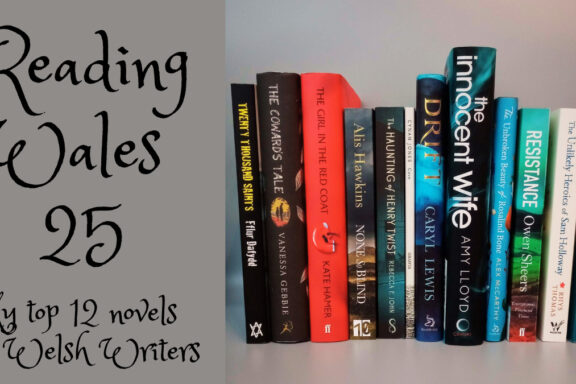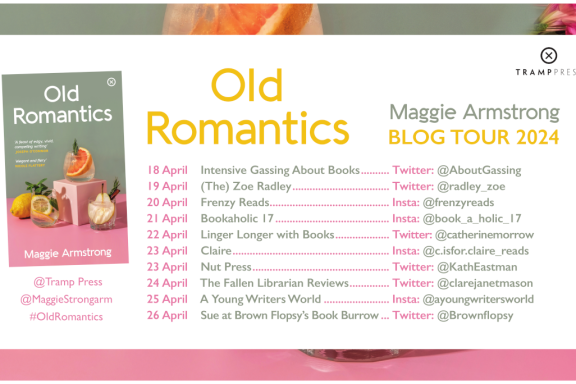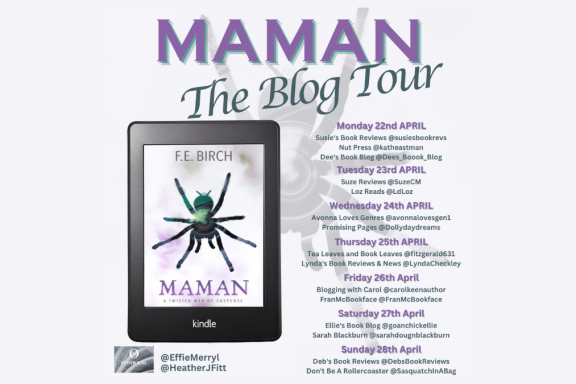 Today I’d like to welcome Nicola Morgan to The Nut Press, which is the latest stop on the Wasted Blog Tour.
Today I’d like to welcome Nicola Morgan to The Nut Press, which is the latest stop on the Wasted Blog Tour.
Wasted is a wonderful YA novel, combining danger, passion, chance and a whole lot more besides and told in a bold and unusual way. You can read my review of Wasted here.
 If it hadn’t been for a chance remark on Twitter (yet again!), I might not have read her latest novel, Wasted, or been part of this Blog Tour, which ties in nicely with the idea of Chance in Wasted and also shows how important social networking is becoming to the writing community.
If it hadn’t been for a chance remark on Twitter (yet again!), I might not have read her latest novel, Wasted, or been part of this Blog Tour, which ties in nicely with the idea of Chance in Wasted and also shows how important social networking is becoming to the writing community.
Nicola very kindly agreed to answer my questions about the book and her writing process.
1. Wasted is a beautifully-realised book with a fascinating premise and I’d recommend it to anyone, irrespective of their age. Wasted is a Young Adult book and reading these can often be a guilty or secret pleasure for older adults. I understand why books are classified in this way, but what’s your take on it, both as an author and a reader, and how do you feel about Wasted’s YA tag potentially preventing it from reaching the wide readership it deserves?
I have absolutely no problem at all, since I wrote it for teenagers and they are who I think about when I’m writing. Of course, I’d also love other people to read it and I also believe that we should read any book we want, regardless of age. There are many, many other YA books that are enjoyed by adults and I suppose the only annoying thing I find is when publishers decide that one book is going to be pitched as cross-over, ignoring that actually vast numbers of books are natural cross-overs, if only people would think more widely. Readers should be encouraged to read outside pigeon-holes but I think writers still need to know their core audience.
2. Wasted is a fascinating read for anyone who is or wants to be a writer. Writers trade in What-if’s? and you really play with these throughout the book. It must have been fun to brainstorm them but how did you decide which ones made the final cut and ensure they didn’t affect the book’s pace?
No decisions – just gut feeling! A simple question each time: does this feel right or not?
3. When I first read Wasted, I thought it must have been an extremely complicated book to write but, when I looked at the structure more closely, there is a clear story arc. The variables (or What-if’s?) fall away as you progress through the book. Did you know the ending(s) when you started out or did you follow your preferred What-if? paths once writing was underway?
I am a rather haphazard planner and any ideas I have about what might happen tend to change constantly as I write. So, I’m afraid I can’t remember very clearly at what point I knew what the endings would be. When I wrote the first chapter, I know I had some ideas that ended up not happening. You’re right though: it’s not complicated at all. One thing leads to another, as in life. All I had to do was control the overall shape, moving towards the ending. Books always look harder to write than they are!
4. Did you write Wasted chronologically or take individual scenes, write those and then piece everything together? Was your approach to Wasted the same as with your previous books?
I always write chronologically. I wouldn’t dream of writing a scene before its turn has come. I’ve heard of writers who write the scenes they’re most looking forward to first – that would be like eating the icing first! Bad! Occasionally I might write a difficult scene quite roughly, if it wasn’t going well, and tell myself that I’d sort it out later, but in practice “later” would be very soon. I’d really rather just write it as it happens.
5. You’ve mentioned elsewhere that the force of Jack and Jess’ feelings for each other surprised you while you were writing about their relationship. You kept this in the book and like it better for having done so. Were there other surprises like this along the way that you’d be happy sharing?
My problem with answering questions like this accurately is that I don’t have any plans or notes written down, and I have a terrible memory! But I do know that alcohol was going to play a bigger part than it does. In the end, Jess’s mother is the only one abusing alcohol. I rather like how that happened. It’s such a cliché to talk about teenagers and alcohol and I’m glad I didn’t focus on it. Yes, you see it happen in Wasted, and you can draw your own conclusions, but it’s not a big part.
6. The characters in Wasted are excellent and I particularly like Jack, Jess, Spike and Sam. Who did you find first, Jess or Jack, and how did you then settle upon their match? How do you bring your characters to life? Do you use real-life inspiration from the coffee shop or film and television actors; fill in character questionnaires; plot their backstory; or do they sometimes just walk into your head fully-formed?
Thank you – I’m glad you liked them! Jess and Jack grew together – it was always going to be their joint story. They just grew, bit by bit. I don’t do anything as organised as filling in questionnaires (good idea – I should!) – I just add bits on as I need them. I do need to picture them physically before I can know them, though. The ones I had most trouble with were the Kelly Gang, the bad girls. Each time I wrote a physical description I just felt I wasn’t getting them, so I scoured the internet for pictures, using the search phrase “bad girls” – and you can imagine, that was very helpful! – and then I just took inspiration from loads of different images that came up, and created my very own bad gang.
7. Reading Wasted sometimes made me feel that the characters were pieces in a universal game of speed chess or draughts but that they could make small decisions to change or influence their next move. Did any of characters make decisions which changed how you had planned to write them? And do you believe that life is like this and, if so, can you give me an example of a small decision of yours which has had a big impact on your life?
That’s exactly how I wanted you to feel – hooray!! As to whether the characters made decisions which changed how I planned to write them, since I didn’t have a plan, it was the characters that affected everything, to be honest. I have much less control over them than you’d think. As to my own life, gosh, yes, LOADS of things. Starting my publishing blog has hugely changed my life and brought me in contact with many people who are now very important to me; and I wouldn’t have started that blog if I hadn’t gone to a particular event and heard someone make a particular comment that got me thinking.
8. You switch narrators throughout Wasted, so that we not only see the story from multiple characters’ viewpoints but we also get to step back and see the bigger picture and events that may or may not happen through an omniscient narrator. This is incredibly difficult to manage successfully (which you did!) and potentially disastrous in less experienced hands. Did you have any coping strategies to help you juggle the different viewpoints and voices and switch easily from one to the other, or advice on how to do so?
I’m really sorry – I have no special trick or advice. I just did it, let it out just as it came. I suppose that because I do know what the rules are, I know how and when to break them – in the same way as a trained artist can mess with perspective and do something interesting (but I couldn’t), so I can mess with viewpoints in a way I couldn’t have when I was newer to the game. I think it’s not so much breaking rules as bending them to a new shape.
9. One of the aspects of Wasted that I enjoyed the most is that you took risks writing it and, as a result, it seems to break or bend some so-called writing rules or conventions. Is that because they’re ultimately there to be broken and what advice would you give on this to writers who are just starting out?
Yes, I believe rules are not there to constrain us. They are there to help us and to help readers. They are not adamantine, but made of a magical material which can be moulded and sliced but only with special tools. You have to work to acquire those tools. Rules should never be sneered at: they should be understood and the purpose of each should be recognised. Rules should never be broken through ignorance or carelessness, but wishing to produce something meaningful or beautiful. Or both. I think that’s what writers try to do. Don’t get me wrong – I’m not saying I have ever succeeded, just that that’s what I’m usually trying to do, and breaking a rule is sometimes the way to do it.
10. Jack is obsessed with luck and chance, something which writers can obsess over, especially when it relates to their likelihood of getting published and, once published, being able to make a career from writing. If it’s the small decisions that make all the difference, which ones would you recommend fledging writers take?
- Read another book in the genre in which you’re writing – everything you read changes you.
- Connect to other writers, published and unpublished: comment on a blog, maybe one you’ve never commented on before – you never know what friend you might make and what knowledge you might gain. Writers are usually sociable and helpful people. I “meet” new people all the time and I love what I learn from them, and the internet does allow you to contact someone you’d never dare speak to in the flesh.
- Go for a walk, alone. Open space is good for creativity. And if you come back with a fab idea – thank me!
- Say yes. Whatever it is you’re wondering about, the answer is yes.
Thank you! Great questions!
Thank you, Nicola. Great answers! Now, if anyone needs me, I’m just off out for a walk…
 Nicola Morgan is an award-winning author for teenagers, with successful titles such as Fleshmarket, Deathwatch, Blame My Brain and Sleepwalking. She prefers to forget that she also used to write Thomas the Tank Engine Books… When she’s not writing, she loves speaking in schools, and at festivals and conferences in the UK and Europe. She also enjoys messing around on Twitter or her blogs. Nicola blogs for writers at Help I Need a Publisher and has set up a special blog about her brand new book, Wasted – you can join the activities and contribute in lots of ways at Talk About Wasted
Nicola Morgan is an award-winning author for teenagers, with successful titles such as Fleshmarket, Deathwatch, Blame My Brain and Sleepwalking. She prefers to forget that she also used to write Thomas the Tank Engine Books… When she’s not writing, she loves speaking in schools, and at festivals and conferences in the UK and Europe. She also enjoys messing around on Twitter or her blogs. Nicola blogs for writers at Help I Need a Publisher and has set up a special blog about her brand new book, Wasted – you can join the activities and contribute in lots of ways at Talk About Wasted



1 Comment